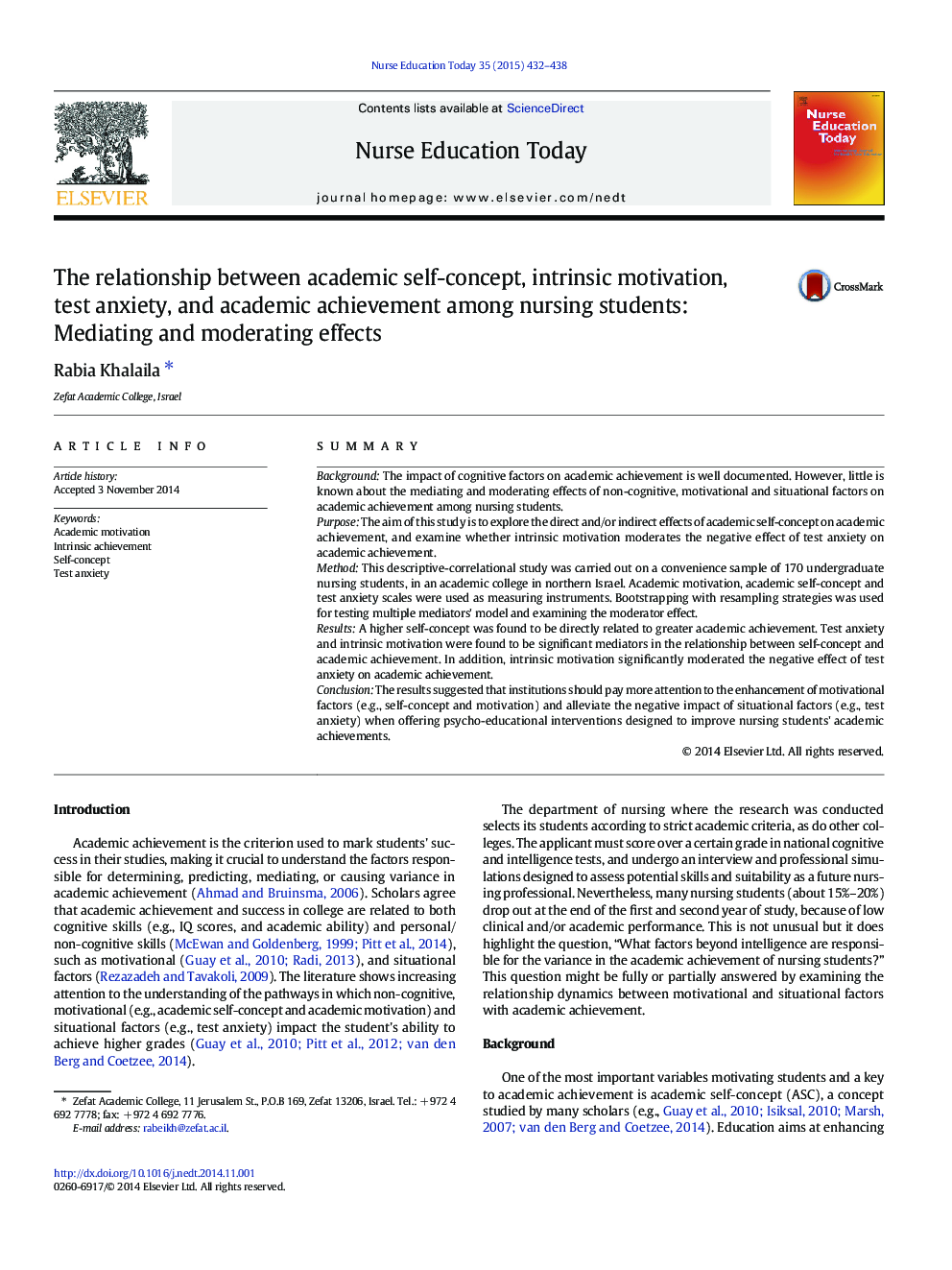| Article ID | Journal | Published Year | Pages | File Type |
|---|---|---|---|---|
| 368059 | Nurse Education Today | 2015 | 7 Pages |
SummaryBackgroundThe impact of cognitive factors on academic achievement is well documented. However, little is known about the mediating and moderating effects of non-cognitive, motivational and situational factors on academic achievement among nursing students.PurposeThe aim of this study is to explore the direct and/or indirect effects of academic self-concept on academic achievement, and examine whether intrinsic motivation moderates the negative effect of test anxiety on academic achievement.MethodThis descriptive-correlational study was carried out on a convenience sample of 170 undergraduate nursing students, in an academic college in northern Israel. Academic motivation, academic self-concept and test anxiety scales were used as measuring instruments. Bootstrapping with resampling strategies was used for testing multiple mediators' model and examining the moderator effect.ResultsA higher self-concept was found to be directly related to greater academic achievement. Test anxiety and intrinsic motivation were found to be significant mediators in the relationship between self-concept and academic achievement. In addition, intrinsic motivation significantly moderated the negative effect of test anxiety on academic achievement.ConclusionThe results suggested that institutions should pay more attention to the enhancement of motivational factors (e.g., self-concept and motivation) and alleviate the negative impact of situational factors (e.g., test anxiety) when offering psycho-educational interventions designed to improve nursing students' academic achievements.
